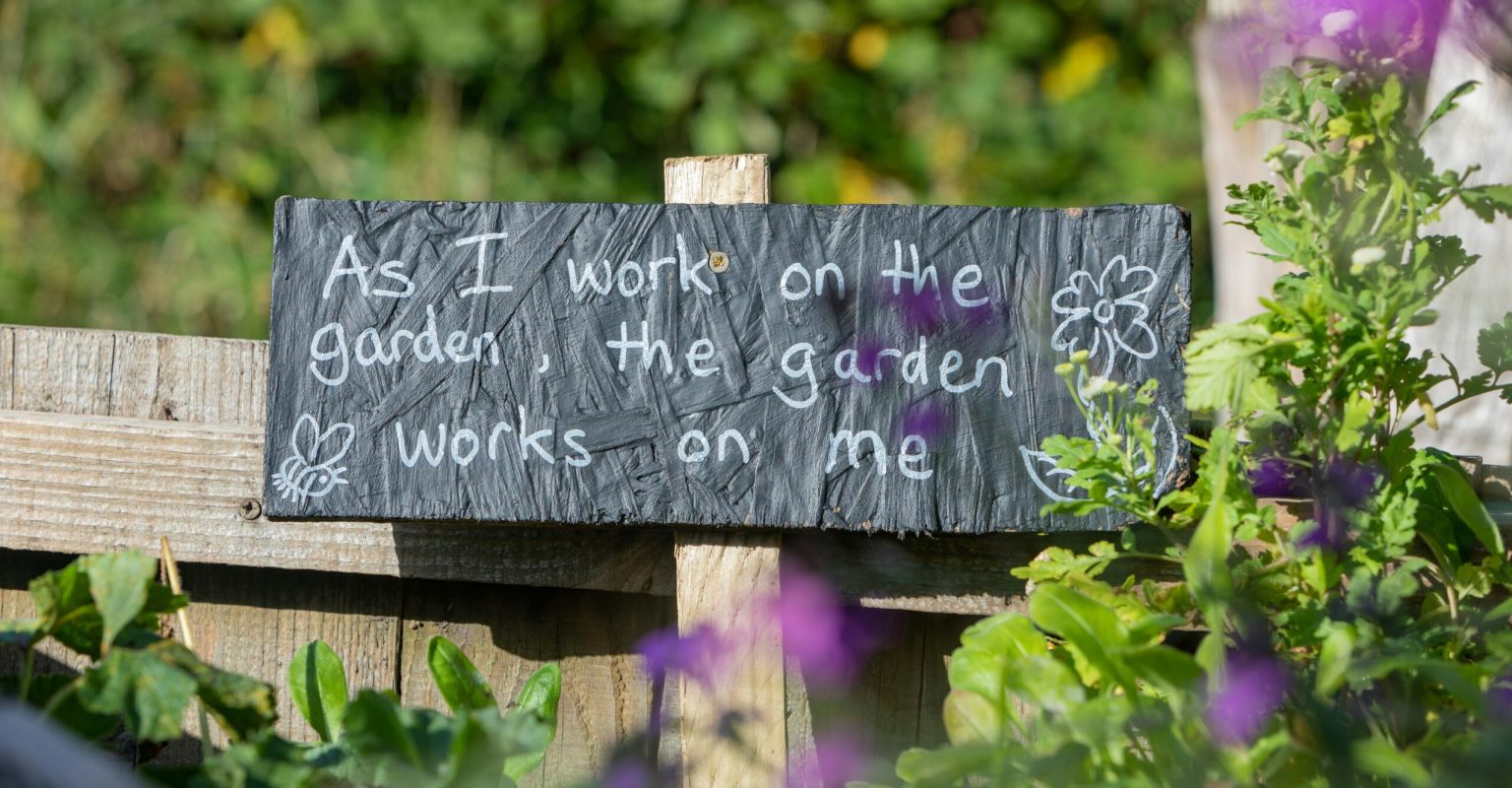By Dr Ross Espinoza, member of The Learning Network
“Life is not measured by the number of breaths we take, but by the moments that take our breath away.”
Mental health is a multifaceted global concern. With advancements taking place in all fields, also comes a great number of stresses that impact all aspects of our lives. A study by The World Health Organization (WHO) and the Global Burden of Disease estimate that one person die from suicide every 40 seconds.
Understanding why mental health awareness matters is not only about preventing difficult situations or responding to emergencies. When things are going okay, it’s about ‘filling our cup’ by taking notice of the significance of those moments that take our breath away. Building our resilience to reach our full potential requires commitment to daily practices.
Mental Health Awareness Week takes place from May 13 to 17 and it’s a time dedicated to encourage a deeper understanding of mental health issues and promoting well-being. To develop daily practices that are suitable for us, we can start by reframing and elevating our knowledge around the pillars of mental health.
Let’s explore how we can transform our approach to mental health by shifting our focus from connections to meaningful conversations, from basic health to self-care, from nutrition to nourishment, from exercise to movement, and from simply being outdoors to immersing ourselves in nature.
From Connections to Conversations
We live in times when digital connections are abundant and at the same time we may get a sense that the quality of our interactions may feel superficial. Sometimes, we mistake the quantity of our connections for the quality of our relationships. Deep inside we do know that it is the depth and substance of our conversations that make our bonds with others stronger.
To support our mental health, it’s imperative that we move beyond the number of connections we have and delve into the depth of our conversations. When we engage in meaningful conversations, we share our experiences, fears, and hopes, and create a supportive environment for our own emotional well-being.
When we engage in meaningful conversations we feel that we belong. We feel that we are seen and we see the other. We share our thoughts and feelings openly, creating a safe space for vulnerability and understanding. These conversations can anchor ourselves in times of mental distress, providing comfort and support when we need it most.
Top Tip:
Make it a habit to reach out to a friend or family member for a conversation at least once a week. It could be as simple as sharing a cup of coffee or walking together in the park.
From Health to Self-Care
The word ‘health’ can bring images of medical consultations and exercise programs. Sometimes we forget two things: The first is that there is no health without mental health and the second is that we can start with developing our self-care habits when things are going okay.
Self-care is the practice of taking an active and proactive role for our own protection. We can protect our own well-being and happiness, particularly during periods of stress and life challenges. We can take proactive steps to maintain and improve our mental, emotional, and physical well-being.
Self-care is attuning to your body and mind, and giving yourself a break and the permission to rest, recharge, and indulge in activities that bring us joy and relaxation. As we attune with our bodies, we choose the activities we would like to engage in. It’s about responding to ourselves with kindness and compassion.
This approach helps us develop a personalised practice that involves setting boundaries and managing stress. By prioritising self-care, we look after our mental health, making it a daily commitment rather than an afterthought. We empower ourselves because we prioritise ourselves and how we go about our own protection.
Top Tip:
Create a self-care routine that includes activities you love, whether it’s reading, having a cuppa with a friend over a chat, meditating, or taking a long bath. Self-care is not selfish; it’s necessary for maintaining a balanced and healthy life.
From Nutrition to Nourishment
We usually hear about the importance of a balanced diet for physical health. Nutrition focuses on the intake of food for its physiological benefits. A diet rich in nutrients can improve brain function, boost mood, and increase energy levels, all of which are vital for a healthy mind. The impact of nutrition on mental health can’t be overstated.
Reframing nutrition to nourishment takes us a step further, nourishment goes beyond the act of eating; it’s about choosing foods that provide not only sustenance but also pleasure and satisfaction. It’s also about engaging with food in a more intimate manner. Nourishment is a more holistic approach that considers the emotional and spiritual aspects of eating.
Nourishment is about choosing foods that not only fuel our bodies but also feed our souls. It involves mindful eating, where we savour each bite and appreciate the flavours, textures, and aromas. It’s about creating a healthy relationship with food, where meals become an opportunity to connect and enjoy, rather than just a means to an end.
Top Tip:
Go rainbow. Incorporate a variety of colourful fruits and vegetables into your meals. They are packed with vitamins, minerals, and antioxidants that support mental health. Moreover, be present with the rainbow. Be there when you are enjoying your food, enjoy every moment.
From Exercise to Movement
When we think of ‘exercise’, rigorous workouts and gym memberships come to mind. Exercise is often seen as a structured regimen aimed at achieving physical fitness goals. Thinking of movement instead gives us a much broader and more inclusive picture. Movement is any form of physical activity that is enjoyable and sustainable for you.
Further, movement encourages us to integrate physical activity into our daily lives in a friendly way. It could be dancing, walking, stretching, gardening, or any form of activity that gets the body flowing and the heart pumping. We choose what feels right. Regular movement releases endorphins, which have mood-boosting properties, and helps to reduce anxiety and depression.
Movement is gentle on the body, it can feel less intrusive. Movement is about finding joy in the act of moving itself and recognising the positive impact it has on our mental health. We are aware of our presence while you are moving.
Top Tip:
Find a form of movement that you look forward to and can easily integrate into your daily life. The key is consistency, so choose something that feels less like a chore and more like a treat.
From the Outdoors to Nature
Finally, spending time outdoors is known to have health benefits. However, immersing ourselves in nature is an entirely different experience. Nature has a unique ability to heal and make the mind feel younger. The sounds we hear when we are in nature can ground us and provide a sense of tranquillity, perspective and oneness.
Being in nature heals and rejuvenates us. It’s not just about being outside; it’s about engaging with the natural world, whether it’s listening to the wind brushing trees and branches, feeling the sun in our skin, or observing the petals of a flower. Nature reminds us of the beauty and simplicity of life, which can be grounding for our mental health.
Top Tip:
Make it a point to spend time in nature at least once a week. Whether it’s a walk in the park, or simply sitting in your garden, allow yourself to be present and soak in the natural surroundings.
Conclusion
Mental Health Awareness Week is more than just a campaign; it’s a call to action to prioritise our mental well-being and to transform our daily habits into nurturing practices. By reframing the pillars of mental health, we can create a more holistic approach to our overall health and happiness.
We have an opportunity to reflect on how we can enhance our approach to mental well-being. By shifting our focus to conversations, self-care, nourishment, movement, and nature, we can create a more holistic and fulfilling approach to mental health. These pillars encourage us to engage with ourselves and the world around us in a more meaningful way, promoting a sense of balance and harmony that is essential for our overall well-being.
When we prioritise our mental health habits, we honour ourselves and contribute to a more compassionate and understanding society. Let’s commit to these transformed practices, not just for a week, but as ongoing principles in our lives. Let’s cherish the moments that make life beautiful and support each other in the journey towards mental well-being.
About the author
Rossana is a creative and industrious learning experience designer and learning consultant. She is the first female Chair of the Staff Development Forum (SDF), leading the SDF to fulfil its promise: to elevate the professional growth of staff developers in the Higher Education sector. She orchestrated the first virtual SDF Festival of Learning and Development during the pandemic and transformed a hierarchical structure to an agile matrix structure with an invigorated Exec team.
References
Brown, N. (2024). Mental Health Awareness Training for Managers: It’s time to break the stigma about mental health. Independently published.
Mental Health First Aid England (2024). Mental Health Awareness Week 2024: Moving more for our mental health. Accessed 04.05.2024
Mental Health First Aid International (2024). Mental Health is a Global Priority. Accessed 04.05.2024
Prince, M., Patel, V., Saxena, S., Maj, M., Maselko, J., Phillips, M et al. (2007). No health without mental health. Series, Global mental health. Volume 370, issue 9590, p859-877, September 08, 2007



